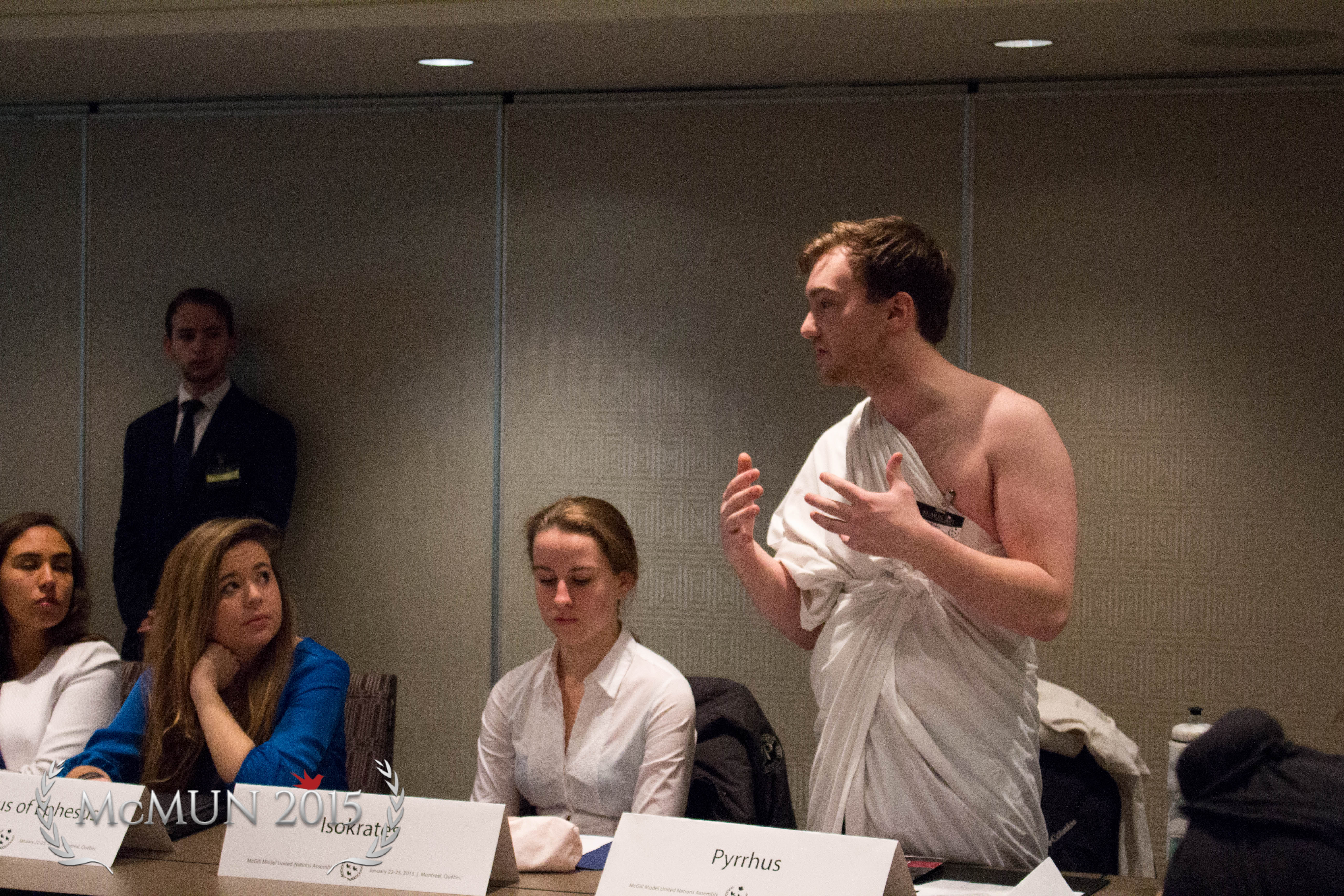Combined SA & Crisis Committee on Persian Invasions of Ancient Greece

The Combined SA & Crisis committee concerning the Persian Invasions, divided into the Athenian War Council and the Athenian Democracy, addresses a declaration of war on Athens during the Second Invasion. The session takes place in 480 BC, at a time when Athens was the only city to have declared itself a democratic city-state. At the time of the crisis, Persia had decided to attack the city-state of Athens. The assembly of Athens, being an assembly which represents the uniquely democratic city-state of Ancient Greece, was faced with the task of addressing the attacks and dealing with the threats in a democratic fashion.
It is important to note a few contextual circumstances. Considering the time and place in which this combined committee takes place, significant focus (or lack thereof) is given to the approval of the gods. Decisions are made in accordance with divine will. For example, the gods were angry at the Athenians for having recently sacrificed a diseased sheep contrary to the rules of ritual sacrifice. Second, the Athenian democracy needed to work alongside the Athenian war council. The Athenian war council consisted of ten war generals, each of whom commanded one thousand troops. The war generals, with the help of their troops, were all embroiled in fighting back the Persian invasion. Last of all, communication between the war council and the Athenian assembly was not open and free. Only a select number of war generals had the means of communicating with members of the Athenian assembly.
It is within this context that the Athenian assembly had been working to address the current crisis. The youth of the city, having become increasingly disillusioned, began to revolt. Youth were seen throwing fruit at government buildings, expressing their displeasure with the current crisis and the way in which the Athenian assembly is addressing it. In particular, the youth are displeased with the Persian alliances which have been being formed.
A number of bills were proposed to address the ongoing crisis. One such bill, which was the Iron Bulls bill, which placed a focus on producing future war technologies. This bill sought to prevent Athens from any potential attacks. Another such proposed bill, which did not pass, was the Unconventional Warfare Bill. This bill sought to use the territory of the Italian colonies to develop more advanced weapons and to conduct research about new potential weapons to produce, such as Persian poison. One concern which was raised in relation to this proposed bill was the fact that there was no mention of an appeal to the gods. The gods are, after all, an incredible source of intelligence, and it did not make sense that their opinion on the matters would not be appealed to at all, should this bill pass. Furthermore, certain assembly members expressed a concern with the fact that the bill stated an intention to integrate the advanced technology into the military. This particular aspect of the bill was alarming due to recent suspicions that the military is in fact making an effort to overthrow the Athenian democracy. While the two who proposed the bill argued that they had no choice but to integrate these technologies into the military, the bill did not pass.
The most recent order of business was to elect three representatives from the Athenian assembly to enter talks with the war council. The three assembly members who were chosen were Leonidas, Telemachus, and Hephaestus. Leonidas was, in fact, one of the last assembly members to speak to the war council, so the continuity of a previous connection, along with his previously successful efforts to coordinate with the war council, made him a clear choice. Telemachus argued that, as one of the more quiet members of assembly, he would be able to give an unbiased and fair representation of what the Athenian assembly believed, and what they intended to argue for. Finally, Hephaestus advocated for both neutrality and strength of beliefs. He stated that while it was indeed important to be amenable and understanding of the war council’s demands, it was also essential to stand up for the Athenian assembly’s most essential values.
We will have to wait to see what these three assembly members will be able to negotiate with the war council and the Persian envoy. Stay tuned for new developments.
